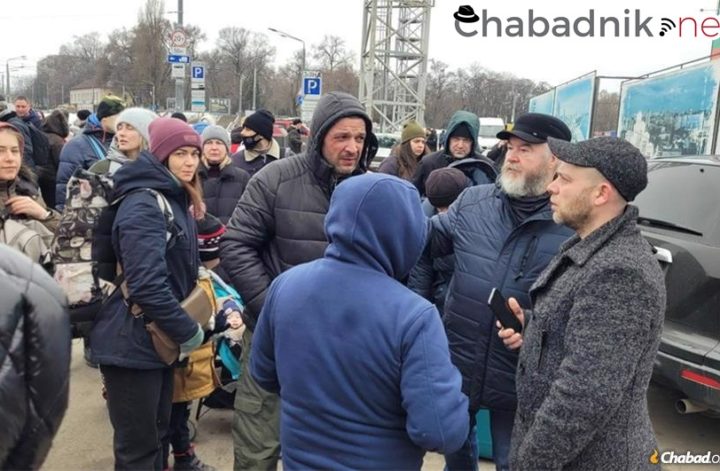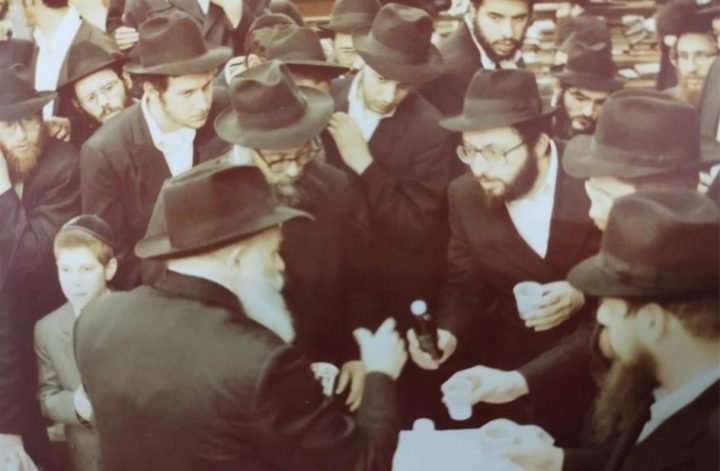Ramping up mass evacuation efforts from east Ukraine Jewish capital
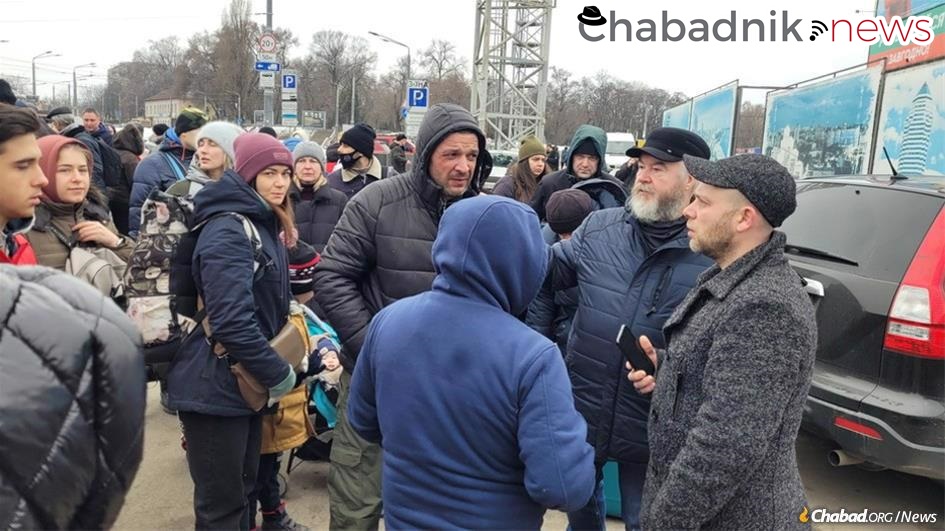
For two weeks of the war in Ukraine, the eastern city of Dnipro—Ukraine’s fourth-largest city with almost a million people and an estimated 50,000 Jews—was a haven of relative calm amid the heavy, daily bombardment of other cities. With its advanced Jewish infrastructure, including the 22-story high, 538,000-square-foot Menorah Center, it was only natural for Dnipro—led by the city’s chief rabbi and Chabad-Lubavitch emissary Rabbi Shmuel Kaminezki— to turn into the center of refugee and aid activities for the Jews of eastern Ukraine, where the majority of the country’s 350,000 Jews live. In short order, Dnipro’s Jewish community was caring for its own while housing, feeding and evacuating people running from harder-hit parts of the country.
This relative calm was shattered when Dnipro was bombed hard on March 11. While mass evacuations were already ongoing, with the Menorah Center serving as a hub for the those internally displaced, where they could freshen up, sleep and eat after a difficult journey while making onward plans—usually joining a Chabad-organized convoy, bus or train carriage—those efforts have now been stepped up, says Rabbi Yaakov Goldstein, a Dnipro emissary working on the evacuation effort.
“People are feeling a real danger,” Goldstein tells Chabad.org. “They are afraid their house will be blown up. They have no choice but to become refugees.”
Goldstein says many of the internally displaced are from hard-hit Kharkov (Kharkiv), but now, people in once-calm Dnipro are feeling unsafe. “It’s getting dangerous for Dnipro residents as well; we need to get everyone out, we take whoever asks.”
While running a mammoth operation to whisk hundreds out of the country each day, Dnipro’s Menorah Center is also at the heart of the relief efforts in other ways. For weeks leading up to the conflict, they stockpiled basic food staples that they are now sending to other Ukrainian cities, in addition to the large quantities of food the center is cooking each day and delivering to the needy in the community.
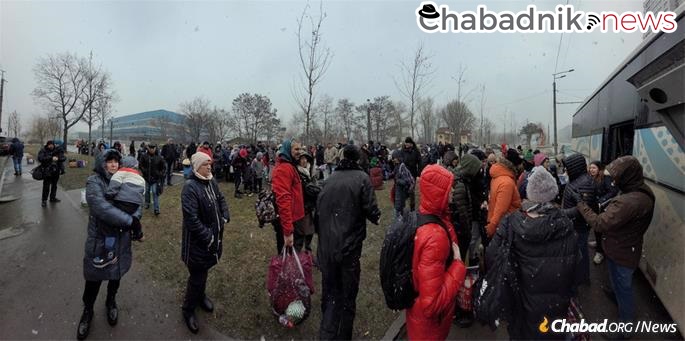
A Functioning Hospital
With the frigid weather outside, those with windows shattered by the bombings are at risk, especially the elderly, many of whom are Holocaust survivors. Chabad of Dnipro is sending out crews to repair the windows and ensure the safety of the community’s most vulnerable.
Inside the center, a fully-equipped hospital is staffed by doctors, surgeons and nurses, providing life saving medical treatment at no cost to the refugees .
The evacuation brings to mind Chabad’s 1946 Great Escape from the USSR, when Chassidim streamed to Lviv from all parts of the country to flee the Soviet Union. Back then, the clandestine Chassidic network worked to smuggle the persecuted Jews to freedom in the West. Today, people are once again streaming to Lviv, though this time it is not to escape government persecution but to avoid heavy bombardment and war.
In remarkably similar scenes, Chabad is bringing Jews from across the country to Dnipro, where they take trains to Lviv and buses to the Polish and Moldovan borders. “We’re working with many different forces to make this happen,” Goldstein says. “The Federation of Jewish Communities (FJC), the American Jewish Joint Distribution Committee (JDC), the Jewish Agency … we are working closely with everyone.”
He notes that Chabad is also working closely with a member of the Ukrainian parliament, Georgii Logvynskyi, to coordinate the operation with law enforcement and government authorities.
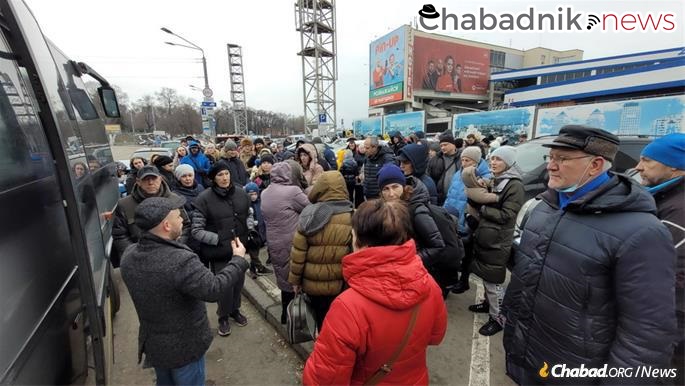
A Dangerous and Costly Process
Getting people out of active conflict zones can be a dangerous and expensive process, notes Goldstein.
Chabad’s work doesn’t end at the border; staff help the refugees cross and work with Chabad emissaries on the ground. They’ve secured an entire hotel in Warsaw, Poland, and turned it into a refugee shelter. Israeli consular officials visit the hotel and work with those wishing to immigrate to Israel, with others are assisted in settling in places like Vienna, Amsterdam and throughout Germany, where Chabad is resettling thousands of refugees.
In Moldova, Ukrainian refugees are being received by the Jewish community and hosted on campsites. Goldstein says the situation in Moldova is especially difficult with a shortage of Israeli consular officials, and until recently, a shortage of beds. Thankfully, Chabad of Moldova has secured new campsites where they can continue to ensure that each person coming through is given proper sleeping quarters and three hot meals a day.
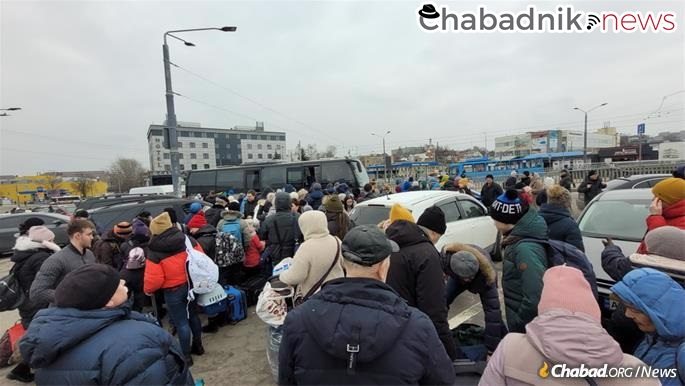
But as the refugee centers fill up and the crisis continues unabated, Goldstein prays for Divine intervention: “We’re hoping for a Purim miracle.”
To assist the Jewish community of Dnipro reach safety, click here.
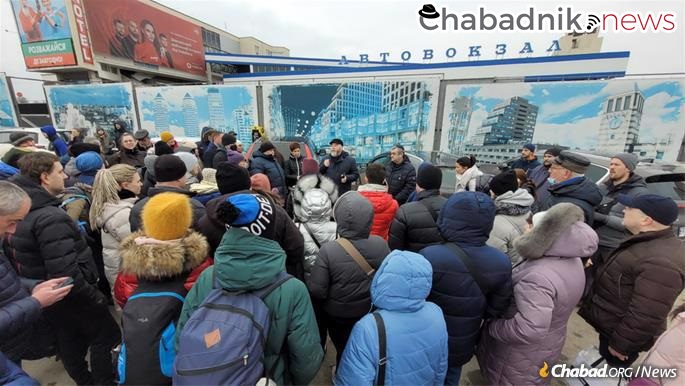
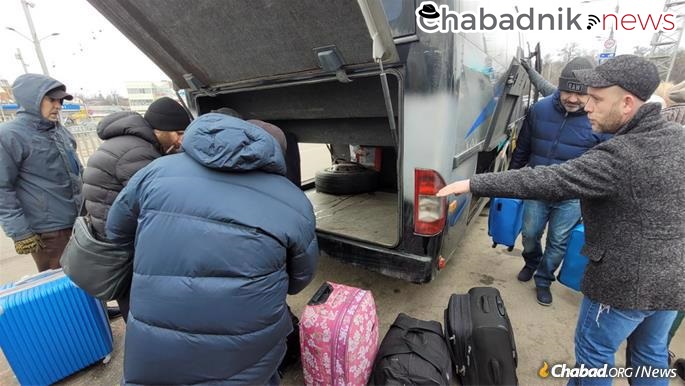
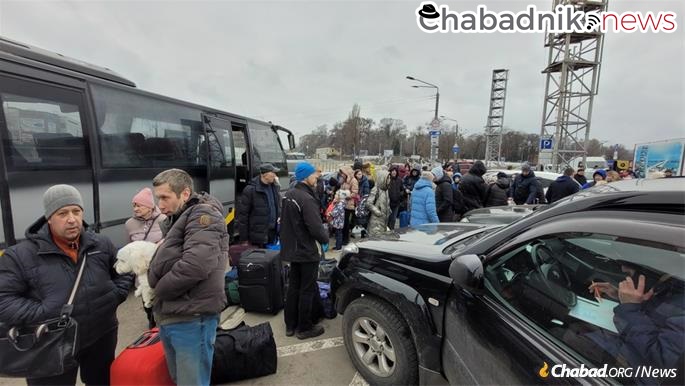
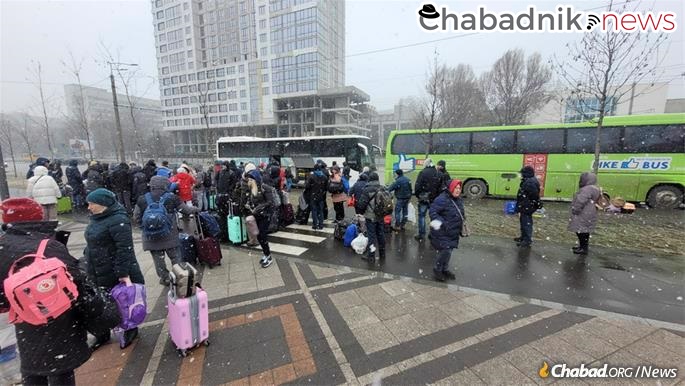
Source: https://www.chabad.org/news/article_cdo/aid/5439708/jewish/Rocket-Attacks-on-Dnipro-Intensify-Jewish-Community-Evacuating-Hundreds-Daily.htm

